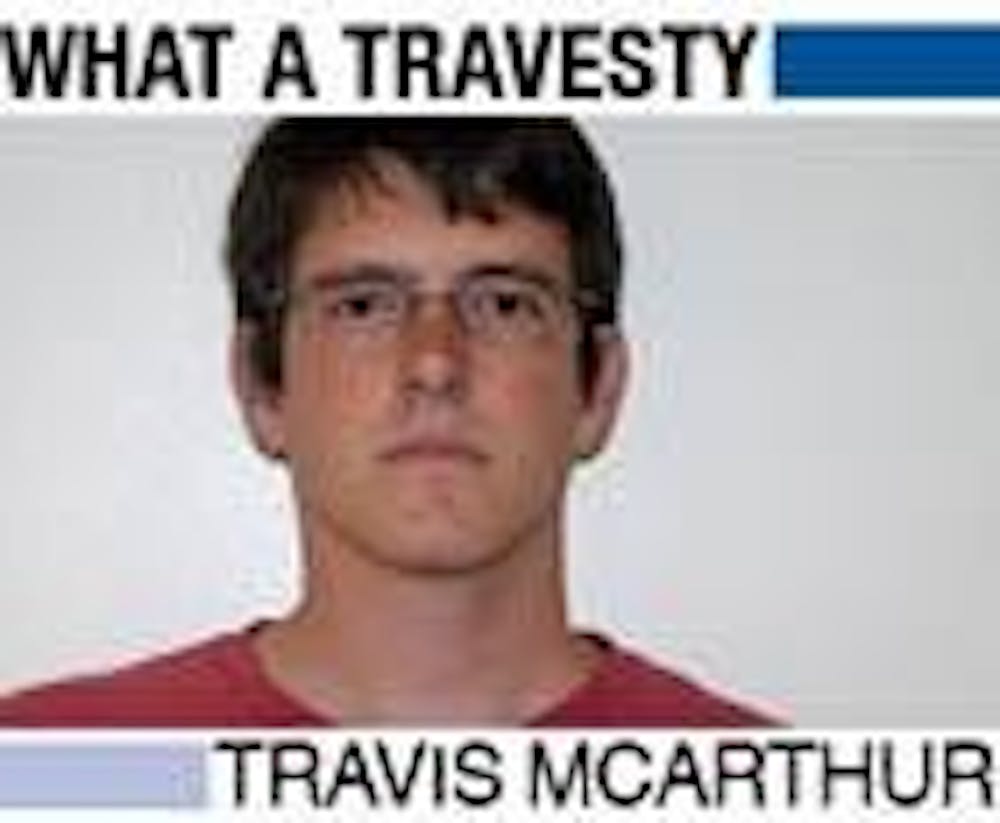"Could you spare some change?" Anyone with more than a few city outings under their belt has been faced with this question. It is often an uncomfortable encounter that instantly erases any notion we have of the United States being a classless society. More importantly, it is an instance of one person asking another person for a helping hand.
In D.C., the problem of homelessness is particularly acute. According to the U.S. Census Bureau, D.C. has the third highest poverty rate of any urban area in the nation, with about 20 percent of D.C. residents living at or below the poverty line. People are being squeezed by rising housing costs in the city combined with stagnant wages, and are vulnerable to homelessness. A report by the Metropolitan Washington Council of Governments revealed that in 2006, almost 10,000 people in D.C. experienced homelessness. The homeless problem is due to a hostile economic environment and individual bad luck, not character failings of the homeless.
Regardless of an individual's ability or willingness to hand over change to panhandlers, we are all capable of offering respect to people who are down on their luck. As tempting as it is to ignore a request for money and keep walking, it is wrong. Failing to acknowledge someone dehumanizes him or her and produces calluses on our hearts. Simply looking someone in the face and saying, "I'm sorry" or "I can't afford it right now" can go a long way toward reducing alienation in our society.
That said, I believe the Golden Rule should compel us to chip in every so often, though many seek excuses to avoid doing so.
A common reason that people give for choosing not to honor the requests of panhandlers is that they will likely use the money to feed a drug or alcohol habit, so it is best not to give. This is an oversimplification. The 2006 U.S. Conference of Mayors Hunger and Homelessness Survey estimates that only about a quarter of the homeless struggle with addiction, so it is likely that your neighborhood panhandler is clean.
Furthermore, choosing not to give based on this reasoning reflects a sort of paternalism. The implication of this reasoning is that people on the street do not know what is best for them and that we, enlightened people, must show them the light through tough love. If you are really concerned about the possibility of your donation being used to feed addiction, then you can offer to buy someone a snack instead.
Finally, some people refuse to give because it "encourages panhandling." In reality, panhandling is often a temporary activity while people are looking for work or a way to make up income shortfalls created by underemployment. On average, 45 percent of homeless people actually have a job, according to the National Law Center on Homelessness and Poverty. It is often the case that people are working their way back to a stable life after suffering a major financial blow like an extraordinary medical bill or the loss of a job. Panhandling can be a way to subsist while they are finding their way out of homelessness.
Even if you do not choose to hand over pocket change, there are a few alternative ways of personally addressing the issue of homelessness. An organization called Street Sense enables D.C.'s homeless to make money by selling their poverty-themed newspapers, so buy one. So Others Might Eat (SOME) has informational tickets about its location and services on its Web site that you can print and hand out to panhandlers.
Whatever choice you make, remember that AU is not an island, and we should take our responsibility as members of the D.C. community seriously.
Travis McArthur is a senior in the School of International Service and a D.C. politics columnist for The Eagle.





